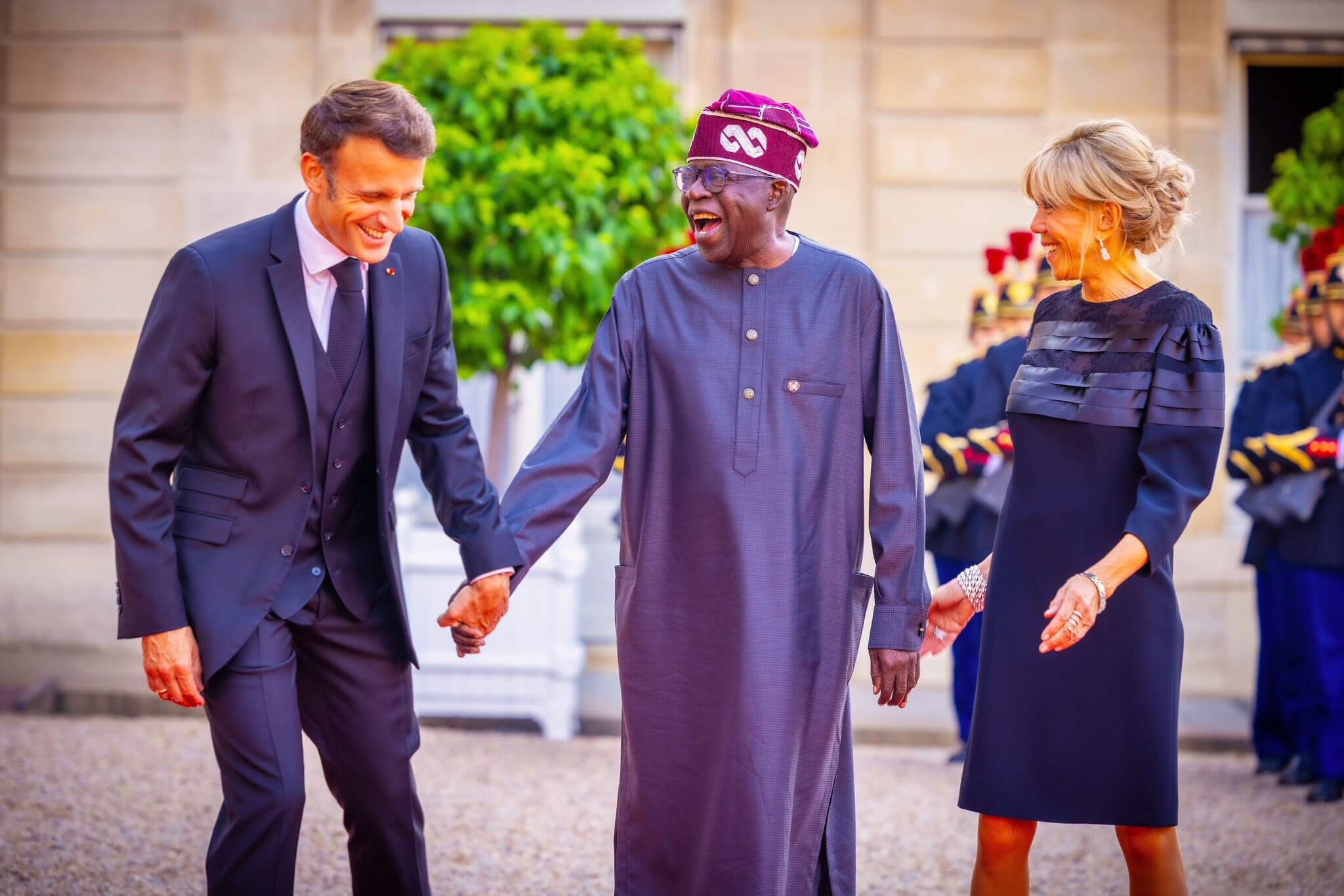Abuja, Nigeria – President Bola Ahmed Tinubu has outlined a transformative vision for Nigeria’s economy, emphasizing that ongoing reforms are designed not only to address domestic challenges but also to serve as a model for Africa’s broader economic revival.
Speaking during a state dinner at the Élysée Palace in Paris, hosted by French President Emmanuel Macron, Tinubu highlighted Nigeria’s commitment to economic restructuring and regional integration. His remarks come amid bold policy shifts that aim to stabilize the nation’s economy, attract foreign investment, and reposition Nigeria as a continental leader.
Reforms at the Core of Economic Renaissance
The Tinubu administration has introduced a series of reforms to revitalize Nigeria’s economy and spur sustainable growth:
- Fuel Subsidy Removal: The elimination of fuel subsidies has been a cornerstone of Tinubu’s economic agenda. While the policy has led to short-term challenges, such as increased living costs, it is projected to free up resources for critical infrastructure and social investments.
- Exchange Rate Unification: In a bid to enhance transparency and attract foreign direct investment, the government has harmonized Nigeria’s exchange rates. This move is expected to stabilize the naira and boost economic predictability.
- Fiscal Reforms: Tax restructuring and revenue diversification strategies have been implemented to reduce Nigeria’s reliance on oil revenues, ensuring a more balanced and resilient economy.
A Vision for Africa
President Tinubu underscored that Nigeria’s reforms are not just for the country but are designed to have a ripple effect across Africa. By creating a stable and transparent economic environment, Nigeria aims to set an example for other African nations.
“Our reforms are a blueprint for economic integration and growth across Africa,” Tinubu stated. “They reflect our commitment to fostering a unified and prosperous continent.”
The President further highlighted partnerships with global leaders, including agreements with France worth over €300 million, targeting agriculture, digital infrastructure, and energy development.
Support from International Partners
Nigeria’s reform agenda has attracted support from major international institutions:
- The World Bank has approved a $2.25 billion loan to support social programs that mitigate the impact of the reforms on vulnerable populations.
- Bilateral relations with countries like France have provided Nigeria with financial and technical assistance, underscoring confidence in the nation’s economic direction.
Challenges and Opportunities
While the reforms have sparked public protests due to inflation and rising costs, Tinubu has reassured Nigerians that these are temporary setbacks on the road to long-term prosperity. Social safety nets and targeted programs are being rolled out to cushion the impact on low-income households.
“Economic transformation comes with challenges, but the promise of a better Nigeria—and a better Africa—makes it worth the effort,” Tinubu said.
Outlook for Africa’s Economic Future
Tinubu’s administration is positioning Nigeria as a hub for investment and innovation in Africa. With reforms targeting energy, technology, and infrastructure, the nation is poised to lead the continent toward economic integration and global competitiveness.
As Nigeria implements these bold reforms, the eyes of the continent—and the world—are on Tinubu’s administration to deliver on its promises of sustainable development and economic leadership.
